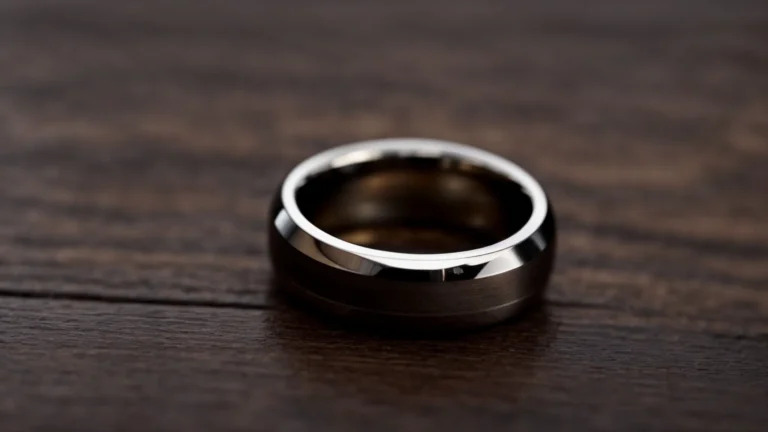Seeking Justice After Medical Negligence: Your Legal Rights
Experiencing medical negligence can be a profoundly unsettling event. When we seek medical care, we trust professionals with our health and well-being. Unfortunately, that trust can sometimes be broken, leaving lasting physical, emotional, and financial consequences. If you believe you or a loved one has suffered due to medical negligence, understanding your legal rights is the first step toward seeking justice and the compensation you deserve.
What Is Medical Negligence?
Medical negligence, also known as medical malpractice, occurs when a healthcare provider deviates from the accepted standard of care, resulting in harm to the patient. The standard of care is generally defined as what a reasonably competent medical professional would do under similar circumstances. Medical negligence can happen in various settings, including hospitals, clinics, nursing homes, and even during home healthcare.
Common examples of medical negligence include:
– Misdiagnosis or delayed diagnosis
– Surgical errors
– Medication errors
– Birth injuries
– Failure to obtain informed consent
– Inadequate follow-up or aftercare
Recognizing the Impact of Medical Negligence
The ramifications of medical negligence are often severe. Patients may endure worsened medical conditions, additional surgeries, long-term disabilities, emotional trauma, and significant financial burdens due to extra medical bills and lost wages. In tragic cases, medical negligence can even result in wrongful death.
The aftermath of such experiences is not only stressful but also confusing. Many victims are left wondering what steps to take next and whether the harm they suffered was preventable. This is where understanding your legal rights becomes critical.
Your Legal Rights as a Victim of Medical Negligence
Victims of medical negligence have specific legal rights designed to protect them and provide recourse for their injuries. Here are the essential rights you need to know:
1. The Right to File a Medical Malpractice Lawsuit
If you believe you have been harmed due to a healthcare provider’s negligence, you have the right to pursue a legal claim. A medical malpractice lawsuit allows you to seek compensation for your injuries and related losses. These lawsuits are civil cases, meaning they focus on financial compensation rather than criminal penalties for the provider.
2. The Right to Compensation
Successful medical malpractice claims can provide compensation for a variety of damages, including:
– Medical expenses (current and future)
– Lost wages and reduced earning capacity
– Pain and suffering
– Disability and disfigurement
– Loss of enjoyment of life
– Emotional distress
In the case of wrongful death, surviving family members may also be entitled to compensation for funeral costs, loss of companionship, and more.
3. The Right to Legal Representation
You have the right to consult and retain an attorney who specializes in medical malpractice or personal injury law. An experienced lawyer can help you understand the merits of your case, gather evidence, navigate complex legal requirements, and advocate for your best interests throughout the process. Consulting a Connecticut personal injury law firm can be a crucial step toward achieving a fair outcome.
4. The Right to a Fair Investigation
Healthcare providers and their insurers are required to investigate claims of negligence seriously. Your legal team can help ensure that medical records are preserved, expert opinions are obtained, and all relevant evidence is gathered to support your claim.
5. The Right to Timely Action
Every state has a statute of limitations for medical malpractice claims—a specific time frame within which you must file your lawsuit. If you miss this deadline, you may forfeit your right to seek compensation. In Connecticut, for example, the statute of limitations is generally two years from the date the injury was discovered or reasonably should have been discovered. However, certain exceptions and nuances may apply, so it’s important to act promptly.
Steps to Take If You Suspect Medical Negligence
If you suspect you have been a victim of medical negligence, consider the following steps:
1. Seek Medical Attention
Your health should always be your top priority. If you believe you have been harmed, seek immediate medical attention from another provider to address any potential health concerns and prevent further injury.
2. Document Everything
Keep detailed records of your medical treatment, including dates, provider names, diagnoses, prescribed medications, and any communications with healthcare professionals. If possible, obtain copies of your medical records and bills.
3. Consult an Attorney
Medical malpractice cases are complex and require a thorough understanding of both medical and legal issues. Consulting a knowledgeable attorney, such as those at a Connecticut personal injury law firm, can help you determine whether you have a viable case and what compensation you may be entitled to pursue.
4. Don’t Communicate Directly with the Other Party’s Insurer
Insurance companies representing healthcare providers may contact you in an attempt to settle the claim quickly or obtain statements that could be used against you. It’s generally wise to direct all communications to your attorney.
5. Preserve Evidence
Do not alter or discard any medical records, prescriptions, or related documents. These items can be critical in establishing what happened and demonstrating the extent of your injuries.
The Role of Expert Witnesses
Medical malpractice claims often hinge on expert testimony. Qualified medical experts can help establish:
– The standard of care that should have been provided
– How the provider’s actions deviated from that standard
– How those actions directly caused your injuries
Your attorney will typically work with these experts to build a strong case on your behalf.
Challenges in Medical Negligence Cases
Medical negligence cases are notoriously challenging for several reasons:
– Proving a deviation from the standard of care can be complex
– Establishing a direct link between the provider’s actions and your injury may require detailed expert analysis
– Healthcare providers and their insurers often have significant legal resources
Despite these challenges, with the right legal representation and a solid case, justice and fair compensation are possible.
Conclusion: You Are Not Alone
The journey after medical negligence can feel overwhelming, but you do not have to navigate it alone. Understanding your legal rights empowers you to take action and hold negligent parties accountable. With the support of an experienced Connecticut personal injury law firm, you can seek justice, recover damages, and focus on your recovery.
If you or a loved one has suffered due to medical negligence, don’t hesitate to explore your legal options. Justice may be closer than you think.



